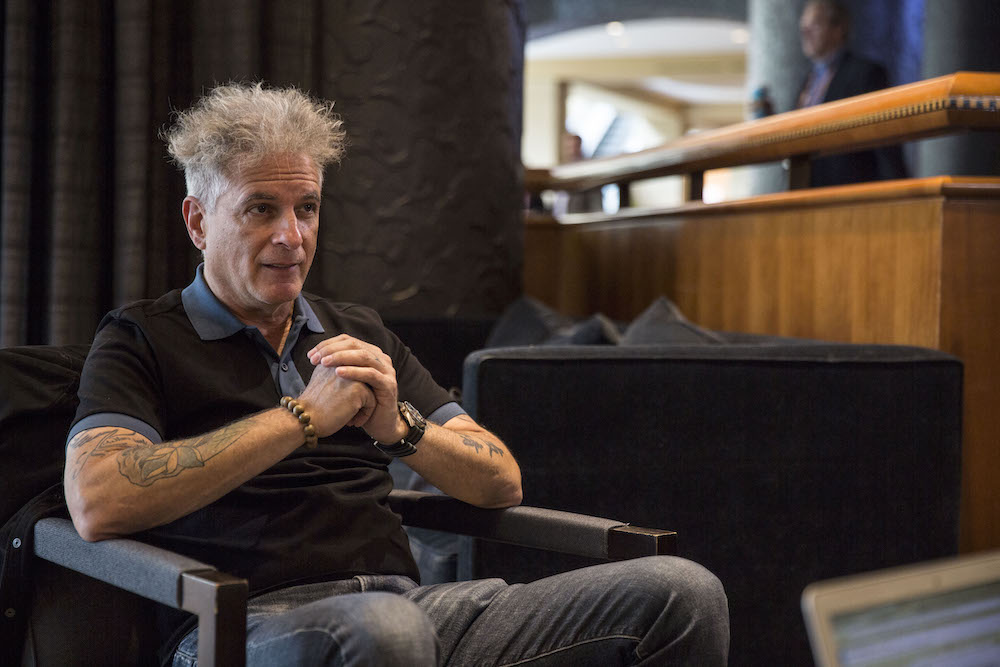Following an eventful 2018 that included the bankruptcy of a major skilled nursing tenant, Sabra Health Care REIT (Nasdaq: SBRA) anticipates a quieter 2019 that is focused on fundamentals.
Specifically, the Irvine, California-based real estate investment trust will be pushing to de-lever the balance sheet and secure acquisitions, CEO Rick Matros said Monday on a Q4 2018 earnings call.
The acquisition pipeline has grown considerably and now represents about $1 billion in potential transactions, primarily in senior housing, he added. However, prices remain high.
If all goes according to plan, by the first quarter of 2020, Sabra could be ready to wholly acquire a 172-property senior housing portfolio operated by Chicago-based Enlivant. That portfolio performed well in the fourth quarter of last year, while the triple-net portfolio had essentially flat sequential occupancy and rent coverage, Matros said.
Sabra posted a quarterly loss of $19.4 million, or a net loss attributable to common stockholders of $0.11 per diluted common share. Its revenue of $139.21 million beat analyst expectations. Sabra shares were down 2.66% at the close of regular trading on Monday.
Senior housing performance, pipeline
Sabra wholly owns 11 communities operated by Enlivant. These communities demonstrated “steady improvement over 2018 with rate growth and solid occupancy,” said Talya Nevo-Hacohen, Sabra’s executive vice president, chief investment officer and treasurer. Average occupancy declined slightly to 92.6% in Q4, but revenue grew more than 6%.
In the much larger assisted living JV portfolio, occupancy was essentially flat on a sequential basis, at 81.7%. However, revenue per occupied unit was up 5.3% from the previous quarter, and the cash net operating income (NOI) margin increased from 23.7% to 25.5%.
Sabra currently holds a 49% stake in this portfolio, in a joint venture arrangement with private investment firm TPG Capital that was struck in 2017. Under the terms of that deal — which valued the portfolio at $1.62 billion — Sabra has an option to acquire the majority interest within three years, at which point the portfolio would be held in a RIDEA structure with Enlivant. Matros anticipates this could occur in Q1 2020.
The Enlivant JV portfolio was underperforming at the time of its acquisition, Matros emphasized. Its occupancy has ticked up steadily from 82% at the time that deal was announced. Sabra anticipates that occupancy will continue to trend upward in 2019, but no dramatic increases are forecast.
Also this year, Enlivant will market for sale certain communities where the market, location and physical plant limit the objectives of the operator and JV partners, Nevo-Hacohen said. At the same time, Enlivant will look to acquire properties that are a better fit.
Sabra’s acquisition pipeline has “increased pretty dramatically since the end of the year,” Matros said. The majority of deals under consideration are senior housing, although skilled nursing deals are also on the rise.
However, pricing remains an issue.
“Private equity groups are still keeping pricing at levels that we think are beyond reasonable,” Matros said.
Gaining firmer footing
Another goal for 2019 is reducing the company’s leverage to below 5.5x net debt to adjusted EBITDA, from its current ratio of 5.66x. The plan is to accomplish this through a mix of asset sales and issuance of equity through an ATM program announced Monday, CFO Harold Andrews said on the earnings call.
De-levering should burnish Sabra in the eyes of the credit rating agencies and improve its cost of capital, Matros said.
“We plan to do both [de-lever and re-invest], but our leverage is above the level we’d like it to be,” he said. “We want to get a stable outlook from Fitch and think that’ll happen, and potentially an upgrade from Moody’s.”
Sabra’s leverage is similar to other large REITs, but the company more often gets compared to smaller companies, he added.
Overall, 2018 was a tumultuous year for Sabra. The company was still in the midst of integrating Care Capital Properties after a $7.4 billion merger with that REIT in 2017. Meanwhile, it had its hands full with troubled tenants, particularly on the skilled nursing side. Sabra went through a tough breakup with one of its major SNF tenants, Senior Care Centers, which went bankrupt.
Now, that situation has been resolved through a legal settlement, but the pricetag for Sabra will be about $69.3 million, Andrews said.
Other skilled nursing issues included the unexpected departure of the CEO at North American Healthcare, Sabra’s fourth-largest tenant, as well as the divestment of the majority of its Genesis HealthCare (NYSE: GEN) portfolio.
And on the senior housing side, Sabra terminated its master lease with independent living giant Holiday Retirement and transitioned to management agreements. Sabra’s Q4 earnings were negatively affected by a write-off of straight-line rent receivable for Holiday.
The REIT’s executive leaders believe that the major restructurings and tenant issues are largely resolved.
“The focus of the remainder of the year is to keep the noise behind us — have some quiet time,” Matros said.


